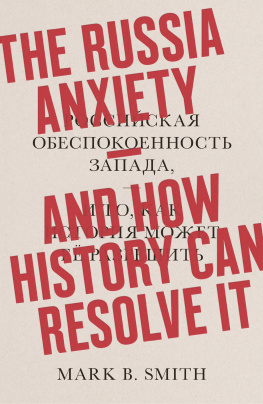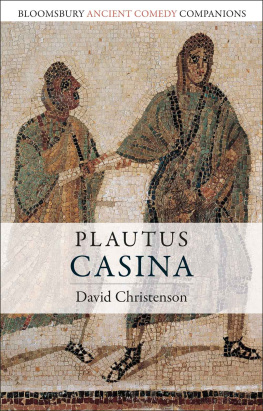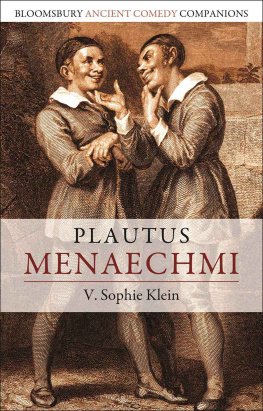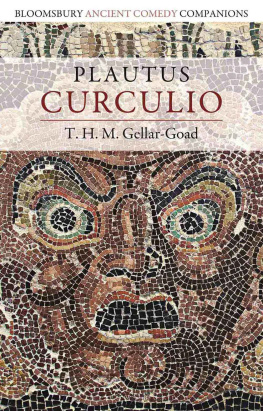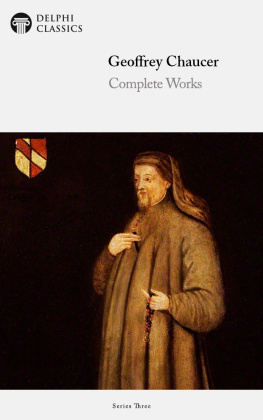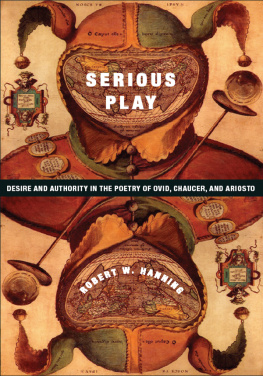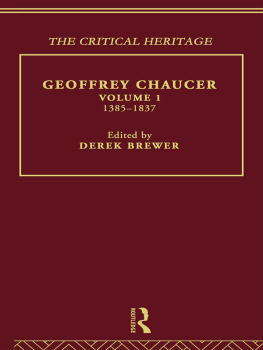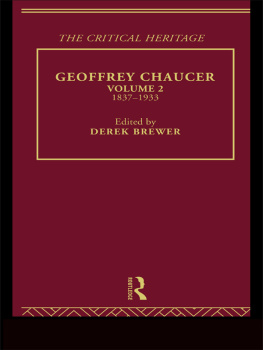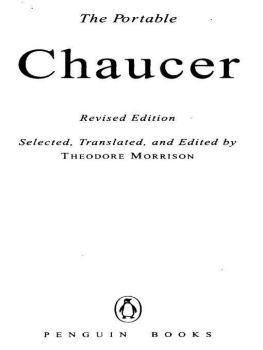Smith - Satiric advice on women and marriage: from Plautus to Chaucer
Here you can read online Smith - Satiric advice on women and marriage: from Plautus to Chaucer full text of the book (entire story) in english for free. Download pdf and epub, get meaning, cover and reviews about this ebook. City: Ann Arbor, year: 2006, publisher: University of Michigan Press, genre: Home and family. Description of the work, (preface) as well as reviews are available. Best literature library LitArk.com created for fans of good reading and offers a wide selection of genres:
Romance novel
Science fiction
Adventure
Detective
Science
History
Home and family
Prose
Art
Politics
Computer
Non-fiction
Religion
Business
Children
Humor
Choose a favorite category and find really read worthwhile books. Enjoy immersion in the world of imagination, feel the emotions of the characters or learn something new for yourself, make an fascinating discovery.
- Book:Satiric advice on women and marriage: from Plautus to Chaucer
- Author:
- Publisher:University of Michigan Press
- Genre:
- Year:2006
- City:Ann Arbor
- Rating:5 / 5
- Favourites:Add to favourites
- Your mark:
- 100
- 1
- 2
- 3
- 4
- 5
Satiric advice on women and marriage: from Plautus to Chaucer: summary, description and annotation
We offer to read an annotation, description, summary or preface (depends on what the author of the book "Satiric advice on women and marriage: from Plautus to Chaucer" wrote himself). If you haven't found the necessary information about the book — write in the comments, we will try to find it.
Smith: author's other books
Who wrote Satiric advice on women and marriage: from Plautus to Chaucer? Find out the surname, the name of the author of the book and a list of all author's works by series.
Satiric advice on women and marriage: from Plautus to Chaucer — read online for free the complete book (whole text) full work
Below is the text of the book, divided by pages. System saving the place of the last page read, allows you to conveniently read the book "Satiric advice on women and marriage: from Plautus to Chaucer" online for free, without having to search again every time where you left off. Put a bookmark, and you can go to the page where you finished reading at any time.
Font size:
Interval:
Bookmark:

Copyright by the University of Michigan 2005
All rights reserved
Published in the United States of America by
The University of Michigan Press
Manufactured in the United States of America Printed on acid-free paper
Printed on acid-free paper
2008 2007 2006 2005 4 3 2 1
No part of this publication may be reproduced, stored in a retrieval system, or transmitted in any form or by any means, electronic, mechanical, or otherwise, without the written permission of the publisher.
A CIP catalog record for this book is available from the British Library
Library of Congress Cataloging-in-Publication Data
Satiric advice on women and marriage: from Plautus to
Chaucer / Warren S. Smith, editor.
p. cm.
Includes bibliographical references and index.
ISBN 0-472-11426-3 (acid-free paper)
1. Satire, LatinHistory and criticism. 2. Satire, Greek History and criticism. 3. Chaucer, Geoffrey, d. 1400Political and social views. 4. Chaucer, Geoffrey, d. 1400----Characters----Women. 5. Women and literatureTo 1500. 6. Satire, MedievalHistory and criticism. 7. Marriage in literature. 8. Women in literature. I. Smith, Warren S., 1941
PA3033.S28 2004 2004014328
877.009'3543dc22
ISBN13 978-0-472-11426-9 (cloth)
ISBN13 978-0-472-02629-6 (electronic)
For Anne Marie, Josh, Caleb, and Rachel
The essays in this book examine satiric attitudes toward women and marriage in later classical literature, starting with Plautus (ca. 200 B.C.) and continuing into the Christian era as far as Walter Map (twelfth century A.D.). With the exception of two closing chapters on Chaucer (d. A.D. 1400), the emphasis will be on authors writing in Latin; this choice is based on the belief that there is a continuity of thought, ideas, and vocabulary throughout Latin satiric literature, from Plautus and Lucretius to Walter Map and beyond. Moreover, greater focus is gained by concentrating on Latin authors, making it possible to trace both a consistency of terms and a literary continuity between the classical and medieval periods, particularly in the case of the important transitional writers Tertullian and Jerome, who are a central feature of two of the essays. This book is not so much about women as about male attitudes toward women and marriage, particularly as that attitude is conveyed in the eccentric and distinctive context of satiric writing. It should also be added that the list of authors under consideration was chosen to reflect various points of view and was in no sense intended as exhaustive or definitive.
, Satiric Advice: Serious or Not? by Warren S. Smith (University of New Mexico), looks at the authors who discuss women and marriage from the point of view of what we can deduce about their attitudes and intentions: what makes such advice satiric and how the genres of satire and comedy influence our attitude toward the narrative voice, how seriously its message may be intended, and the reader for whom the message is intended.
The second chapter, In a Different Guise: Roman Education and Greek Rhetorical Thought on Marriage, by Richard Hawley (Royal Holloway, University of London), shows how the education of the Roman male elite had an important focus on Greek moral values: teachers posing the question Should one take a wife? encouraged schoolboys to search through Greek literature, starting with Homer and the dramatists, for negative examples of married relationships.
Susanna Morton Braund (Standford University), in Marriage, Adultery, and Divorce in Roman Comic Drama (), shows how often Plautus and Terence focus on tension in the married relationship. Uxores dotatae (dowried wives) are dangerous in Plautus, who seems to warn against a legal shift in which a wife becomes sui juris after the death of her father. In Plautus's Amphitryo and Menaechmi, where threats of divorce are a central theme, Plautus challenges the convention of the palliata (which avoided the theme of divorce), and Terence outdoes Plautus with his highly experimental play Hecyra, which shows a marriage held together by the manipulations of unsuspecting men by generous and intelligent female characters.
Warren S. Smith, in , The Cold Cares of Venus: Lucretius and Anti-Marriage Literature, discusses Lucretius as a satiric writer and describes his urging of the (male) reader against any sexual relationship that is accompanied by love, for fear it will distract his thinking and affect his objectivity in the search for philosophical truth. The force of love is finally seen as comparable to that of a plague or an invading army.
Karla Pollmann (University of St. Andrews, Scotland), in Marriage and Gender in Ovid's Erotodidactic Poetry (), shows how Ovid, in his Ars amatoria, teaches young men and women how to refine, cultivate, and control the sex drive as a natural force. The status of the women courted in Ovid's poems is not always clear, and there is a blurring of boundaries between the married and unmarried. The addition of sex advice to women is unusual, even unique, and the female psyche and personality are seen as both complex and subtle.
Warren S. Smith, in Advice on Sex by the Self-Defeating Satirists: Horace Sermones 1.2, Juvenal Satire 6, and Roman Satiric Writing (), shows how Horace and Juvenal warn against sexual relationships with a pessimism that ends up as self-defeating, not only since the sex drive itself is powerful, but because the resourcefulness and resilience of women gives them an unbeatable advantage in their encounters with men.
In Apuleius, women are presented much more negatively (through the vehicle of the Milesian tale), as unscrupulous seducers. The vicious stepmother of Apuleius's book 10 outdoes anyone in Petronius as part of an indictment against the female sex.
Elizabeth A. Clark (Duke University), moving forward to the early Christian era in Dissuading from Marriage: Jerome and the Asceticization of Satire (), analyzes the anti-marriage tracts of the Latin Christian authors Tertullian and Jerome. Jerome borrows and exaggerates much of Tertullian's material and is imbued with a far stronger anti-sexual animus than his predecessor. Jerome's purpose is not to reform marriage but to warn Christians away from it entirely.
Barbara Feichtinger (University of Konstanz), in Change and Continuity in Pagan and Christian (Invective) Thought on Women and Marriage from Antiquity to the Middle Ages (), an overview of antigamous and antigynous literature, stresses the importance of historical and geographical context for judging each of these works. Feichtinger shows a change between pagan and Christian misogamy, a change stemming from a new attitude toward chastity. Sexuality to Christians is seen, in the post-Eden world, as the situation of fallen men. Tertullian, in his treatises on marriage, tries to instill in women good behavior, chastity, and subservience, but to Jerome (Tertullian's successor and imitator), marriage only has value in producing virgins. Both men and women must now be persuaded of the value of abstinence. Misogynistic misogamy is part of the takeover of married life by the medieval church, which attempts to control female authority by placing norms on women.
In , Walter as Valerius: Classical and Christian in the Dissuasio, Ralph Hanna III (University of Oxford) and Warren S. Smith see Walter Map's Dissuasio matrimonii, a popular twelfth-century antimatrimonial treatise, as a riotous fabric of sources with an eye for the colorful and humorous, intermingling classical and Christian sources and achieving a rhetorical tour de force even while disdaining rhetoric.
Font size:
Interval:
Bookmark:
Similar books «Satiric advice on women and marriage: from Plautus to Chaucer»
Look at similar books to Satiric advice on women and marriage: from Plautus to Chaucer. We have selected literature similar in name and meaning in the hope of providing readers with more options to find new, interesting, not yet read works.
Discussion, reviews of the book Satiric advice on women and marriage: from Plautus to Chaucer and just readers' own opinions. Leave your comments, write what you think about the work, its meaning or the main characters. Specify what exactly you liked and what you didn't like, and why you think so.







